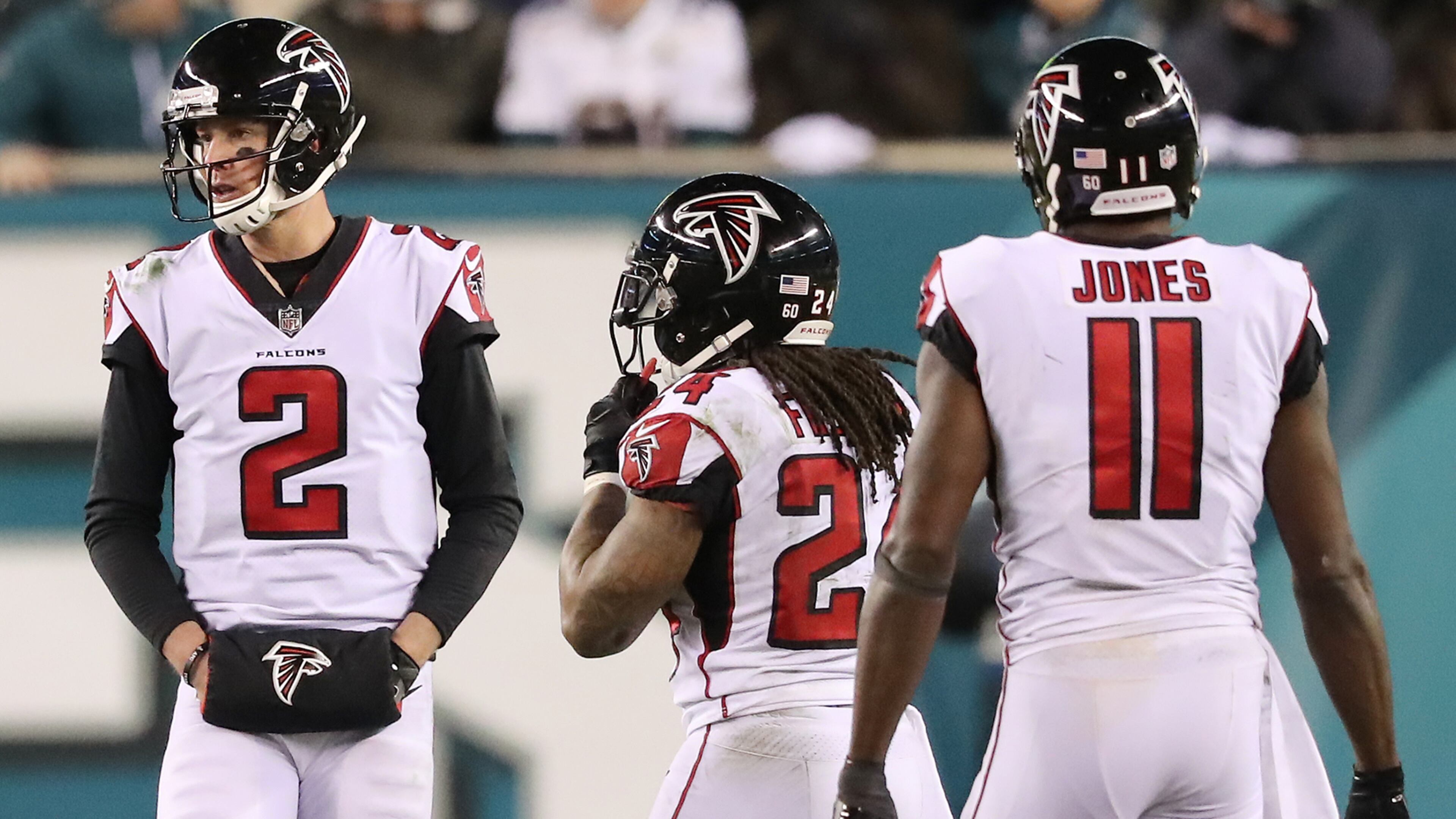ESPN grades Falcons’ 2017 offseason a ‘C’

After looking back at the 2017 season, ESPN.com senior writer Mike Sando gave the Falcons a barely passing grade for their offseason moves.
Prior to this season, the Falcons received a C-plus for their signings following their heartbreaking Super Bowl loss. However, when Sando re-graded Atlanta following an up-and-down year, it received a C.
“The Falcons were already atop the NFC, which meant their C-plus grade from the offseason wasn't necessarily a criticism. It was more a reflection of a good team standing pat personnel-wise,” Sando wrote. “Adding first-round pick Takkarist McKinley was a big plus. The rest of the draft made fewer immediate contributions.”
Linebacker Duke Riley, who the Falcons drafted in the third round, was the only other draftee to see consistent playing time as he appeared in 12 games making 30 total tackles.
The biggest concern following Atlanta’s Super Bowl run was finding someone to replace offensive coordinator Kyle Shanahan, who became the 49ers head coach. In 2016, Shanahan put together one of the most potent offenses in Falcons history and oversaw an MVP campaign from quarterback Matt Ryan.
“Hiring Steve Sarkisian to replace departing offensive coordinator Kyle Shanahan seemed risky because Sarkisian hadn't coached in the NFL since 2004 and had never called plays at that level. The offense might have been due for a regression from its historically productive 2016. Whatever the case, there was decline,” Sando wrote.
On the other side of the line of scrimmage, the Falcons had to replace Richard Smith, whose young defense continued to improve as the 2016 season went progressed.
“Coach Dan Quinn replaced defensive coordinator Richard Smith with Marquand Manuel, and the defense maintained the statistical efficiency it showed during the second half of last season, when Quinn took on greater oversight. That was neither a big plus nor a big minus -- kind of like the Falcons' offseason overall,” Sando wrote.
The Falcons defense became the focal point of the team in 2017, ranking top 10 in total defense (318.4 yards per game allowed) and points per game allowed (19.7). However, the offense scored 11.7 points per game fewer this year and gained 51 fewer yards per game.
More Stories
The Latest

